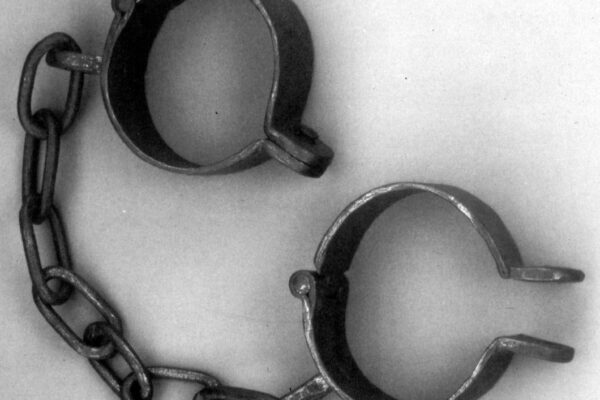It was Florida’s dirty shameful secret: for decades, Florida women who entered jail when pregnant often gave birth under extraordinarily inhumane conditions, with their hands and feet cuffed, and sometimes, with leg irons. Doctors’ and nurses’ pleas to remove the restraints fell on deaf ears, as the corrections officers called the shots.
In 2009, I received a letter from a woman in jail on the west coast of Florida; she told me that during labor, both of her hands and one foot were cuffed to the hospital bedrails. During active labor, when it was time to push, she couldn’t pull up on her legs. Ask any obstetrical nurse or physician: that’s bad for the woman, and bad for the baby. Then, after her baby was born, her handcuffs prevented her from holding her newborn. Again – bad for the woman; bad for the baby.
This was just one letter I received from women in jail – there were many others, all of which told the same stories of the woman’s restraint during labor, delivery, and recovery. Not all county jails subscribed to this cruel practice: some had compassionate birthing practices that involved midwives and doulas. However, there were no uniform guidelines, no statewide standards. Whether a woman was shackled during labor and delivery depended on where she was incarcerated, and whether the corrections officer showed any compassion.
But thanks to a bill awaiting Governor Scott’s approval, that’s all going to change. The bill, sponsored in 2012 by Senator Arthenia Joyner (D-Tampa) and Rep. Betty Reed (D-Tampa) is named the “Healthy Pregnancies for Incarcerated Women Act,” and bans the use of restraints on prisoners during labor, delivery, and recovery unless they present a true security risk or flight risk. In 2011, the bill, sponsored by then-Senator Tony Hill and Rep. Reed, passed the Florida Senate unanimously but stalled in the House.
Jail is a terrible place to be pregnant. Now, however, women in Florida’s jails who have the misfortune of giving birth during their jail terms will at least be free of the hobbling restraints that were the norm rather than the exception across Florida. Better for the women; better for their babies. Thank you, Senators Joyner, Hill, and Rep. Reed, on behalf of all the women behind bars who can’t convey to you their personal thanks. We’ll tell them how you, and the entire Florida Legislature, stood up for them and their babies.
Stay Informed
Sign up to be the first to hear about how to take action.
By completing this form, I agree to receive occasional emails per the terms of the ACLU’s privacy statement.
By completing this form, I agree to receive occasional emails per the terms of the ACLU’s privacy statement.

